We celebrated Awards Day for the school today.
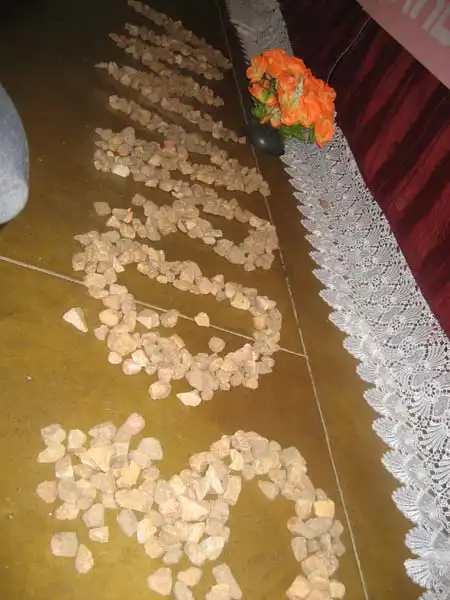 Natural decorations adorned the hall.
Natural decorations adorned the hall.
It was a sort of public prize-giving with some speeches by the local Political supremo and the Alumni, but the day began with a football match between the prefects and the staff and then some play-offs between the various teams. I played in the Staff match (well, for the first half), but then was busy the rest of the morning trying to get the certificates for the boys ready. The Awards day ceremony made about 320 awards.
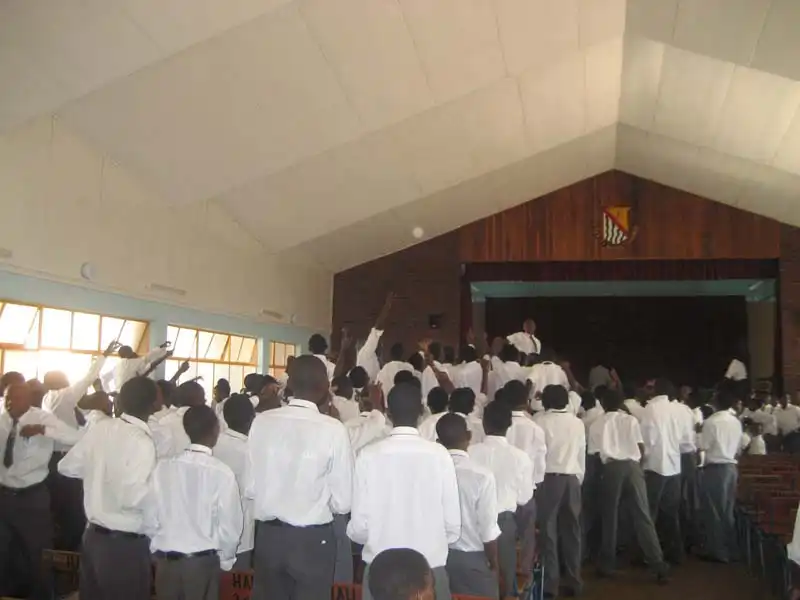 Students in the Hall
Students in the Hall
These covered academic and sporting success – but also the myriad of leadership roles in the school – from Chapel to Chess, Drama to Debating – there were many awards. And on the weekend many boys who live nearby made visits to show their parents the awards they had won. Each award consisted of a certificate, but also a ‘present’ (wrapped in newspaper) and was mostly some form of material for school – either an exercise book, some stationery or other such useful items.
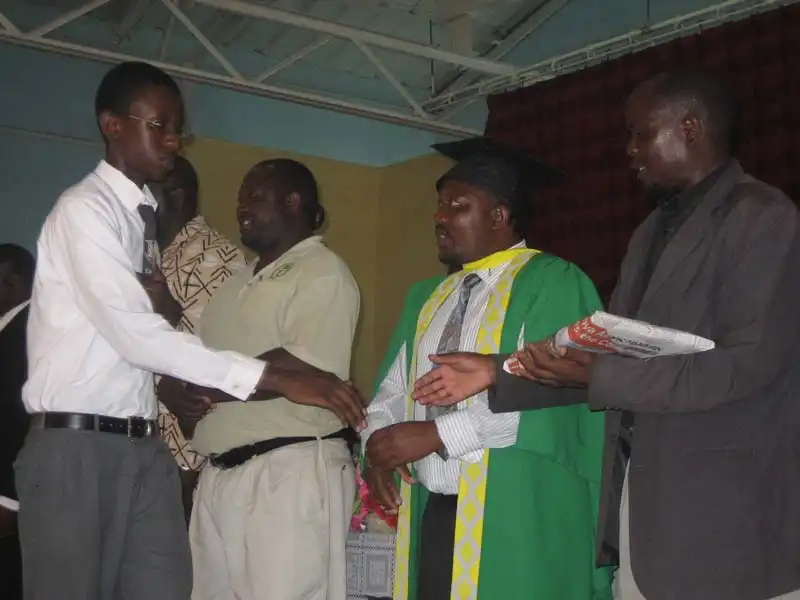 Receiving an award from the Headmaster (robed in University of Zambia dress) and a present (notice the newspaper wrapping) from the District Head.
Receiving an award from the Headmaster (robed in University of Zambia dress) and a present (notice the newspaper wrapping) from the District Head.
But most importantly it was the day that the old prefects (all 38 of them) handed over their authority to the new prefects. You would be forgiven for thinking that the teachers, or even the administration, run this school. In fact, I have come to the conclusion that the Prefects control everything – and their word is law. There are no discipline problems during class – or at least, none that I have noticed. This is largely due to the respect that the children accord studies and success in them – but also it is due to the role of the Prefects in maintaining order and control, and for issuing punishments. In a place where the boys clean the school and prepare the food – punishment could not entail doing ‘dinner duty’ or cleaning (examples from punishments I have been familiar with at schools) since these are every-day neccessities and if the boys don’t do them, they don’t get done. Punishment here is harsh – but also effective. There is no corporal punishment, but digging a hole (or filling one in) is a common approach – as is sweeping paths to minimise the dust around the school. I have asked them about whether they might plant trees but I appear to have too soft an approach.
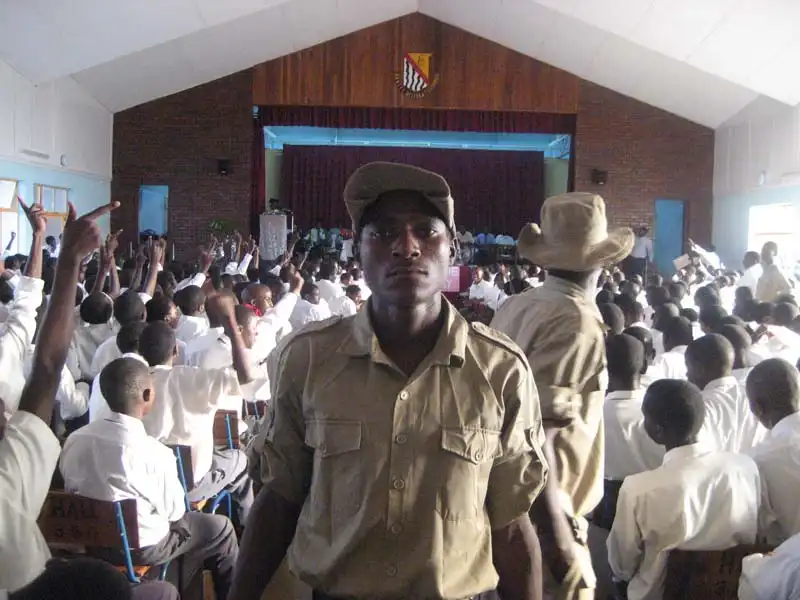 The students in the Cadet Force maintained order during the ceremony, guarding the doors and escorting winners to the stage.
The students in the Cadet Force maintained order during the ceremony, guarding the doors and escorting winners to the stage.
One of the great differences between the Awards Day as I experienced it here and those I knew in South Africa is the very different form of behaviour. Typically, in South Africa, school children would remain silent during the occasion – but here the choir seemed to lead the entire hall in chants and songs and I can only describe it as organised chaos – which was quite refreshing to feel that the boys felt free to acknowledge and appreciate the successes of their peers in such a spontaneous and heartfelt way.
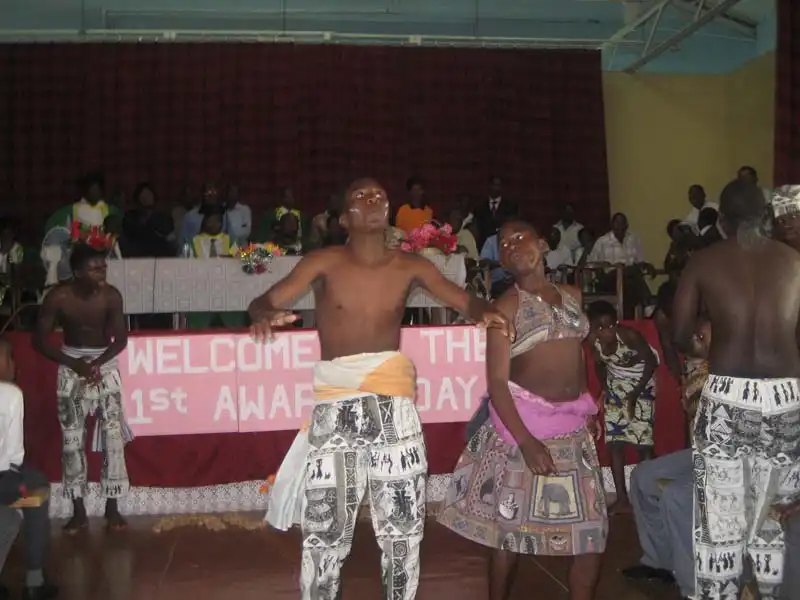 There was some entertainment during the ceremony with dancers. Note that in an all-boys school some cross-dressing is required to do the women’s part of the dance.
There was some entertainment during the ceremony with dancers. Note that in an all-boys school some cross-dressing is required to do the women’s part of the dance.